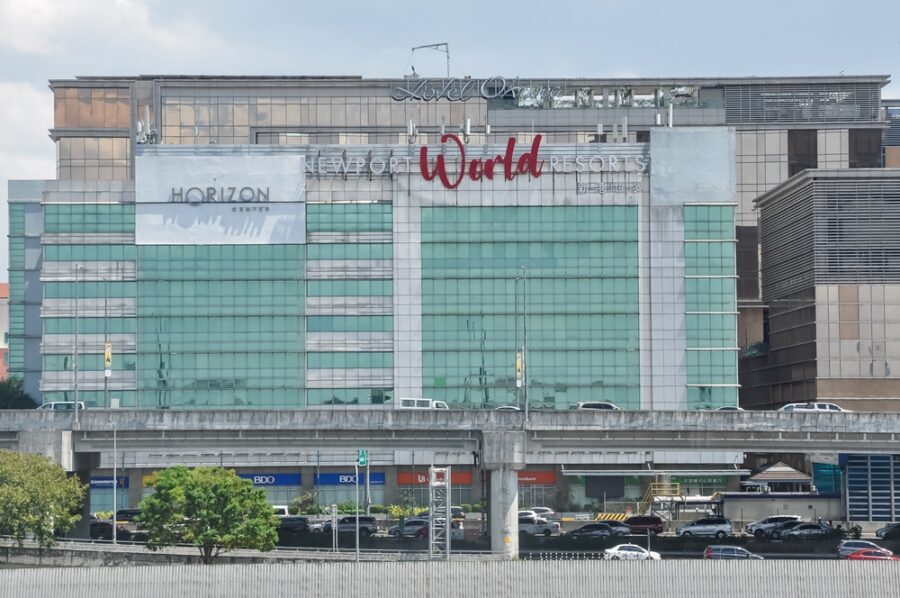Newport World Resorts to expand online gaming presence in the Philippines

Philippine integrated resort Newport World Resorts has revealed plans to scale up its online gaming operations as electronic gaming continues to surge in the Philippines.
Nilo Thaddeus Rodriguez, President and Chief Executive of leisure and tourism group Travellers International and Newport World Resorts told The Philippine Star, “We’re looking at online. Different strategies in terms of leveraging our development there. So not just like having one. We’re looking at several.”
In May, Travellers launched Newport World Casino Online to give members access to live casino games. Rodriguez said the platform catered to existing patrons but added that the company was also developing a mass-market version to compete with rivals like Casino Plus, PlayTime, and BingoPlus.
Rodriguez noted that online gaming had quickly become the industry’s biggest growth driver. Electronic gaming generated 41.5% of total gross gaming revenue in 2024. It surpassed US$2 billion in the first half of 2025, representing more than 53% of the industry’s performance.
“From our perspective, this evolution cannot be ignored,” Rodriguez said. “Online play is not a substitute for the integrated resort experience, but it has become an additional touchpoint.”
The Philippine online gambling industry has been under increasing scrutiny in recent months, with several lawmakers calling for stricter regulations in the sector. Despite this, Rodriguez reiterated that responsible gaming measures remained paramount.
He added, “We remain committed to full compliance with PAGCOR’s evolving frameworks, with the understanding that our contributions to nation-building flow through the regulator’s mandate.”
Charlotte Capewell brings her passion for storytelling and expertise in writing, researching, and the gambling industry to every article she writes. Her specialties include the US gambling industry, regulator legislation, igaming, and more.
Verticals:
Sectors:
Topics:
Dig Deeper
The Backstory
Inside the Philippines’ online gaming pivot: Newport’s bet, rivals’ scramble and a tightening policy lens
From casino floors to phones
Newport World Resorts has moved from testing online play to treating it as a core growth line, a shift that mirrors the industry’s reordering in the Philippines. After launching Newport World Casino Online in May to serve existing patrons, the operator is now building a broader, mass-market version aimed at national reach. President and CEO Nilo Thaddeus Rodriguez framed the strategy as a response to demand and a hedge against volatility, noting that electronic gaming has become the biggest driver of revenue. In an interview, he pointed to online’s role as an “additional touchpoint,” not a substitute for integrated resorts, and pledged adherence to evolving oversight. The push is detailed in Newport World Resorts to expand online gaming presence in the Philippines, which also highlights the sector’s acceleration: electronic gaming generated 41.5% of total gross gaming revenue in 2024 and surpassed $2 billion in the first half of 2025, accounting for more than half of industry performance.
As scrutiny builds, Newport has taken pains to signal that its expansion is an upgrade to an existing platform rather than a new product launch. Its parent Alliance Global Group told investors that a “new version” is meant to improve user experience and revenue capture, clarifying reports about new applications. The filing underscored the near-term goal: translate rising online play into consolidated revenue. The position is outlined in Newport World Resorts to upgrade online platform amid increasing competition, which also notes that the Philippines e-gaming market could reach 200 billion pesos in gross gaming revenue in 2025.
Rivals intensify the digital race
Newport’s timing reflects a wider pivot among integrated resort operators that are racing to offset shifts in customer mix and consumption habits. Bloomberry Resorts Corp., operator of Solaire, plans to layer a new digital platform on top of Solaire Online to target players nationwide. Chairman Enrique Razon has framed the move as a counterweight to the decline in Chinese high rollers after the shutdown of offshore operations in 2024. But Bloomberry will confront entrenched online brands with scale, particularly DigiPlus, which reported 40 million users in 2024 and is leaning on a multiyear head start and marketing muscle. The contours of that contest are captured in Bloomberry Resorts Corporation expands online gaming offering in the Philippines, where DigiPlus executives warn that catch-up will require heavy spending and sustained execution.
The competitive field is widening. Bloomberry has targeted a launch window aligned with its land-based growth at Solaire North and Entertainment City, while other operators signal similar ambitions. Market watchers expect a cascade of platform refreshes and partnerships as casinos seek to convert loyalty databases into omnichannel revenue and deepen engagement beyond properties’ geographic draw. That strategy hinges on frictionless onboarding, compliance tools and content differentiation that can keep players within regulated ecosystems as options proliferate.
Macro tailwinds, regulatory recalibration
The Philippines’ online surge is not occurring in isolation. The country’s gaming industry has regained momentum after pandemic disruptions, buoyed by tourism recovery, foreign investment and a younger demographic with rising discretionary income. At the same time, regulators have realigned frameworks to nudge operators into the formal market and align with international safeguards. Industry leaders credit this recalibration for accelerating digital adoption. In Philippines on course to be Asia’s second biggest gaming hub, Rodriguez argues that the nation has moved beyond recovery into “resilience, growth and ambition,” citing lower licensing barriers and strengthened anti-money laundering rules as key enablers.
Those tailwinds have raised expectations. If online gaming sustains its traction, the Philippines could challenge Singapore for Asia’s second slot behind Macau, with operators leveraging domestic play and regional tourism to smooth volatility. The path forward depends on a policy balance that preserves consumer protections without stifling innovation, and on operators’ ability to manage responsible gaming, fraud prevention and payments integrity at scale.
The policy crosscurrent: expansion meets backlash
Growth has invited a sharper political focus. Lawmakers have pressed for tighter controls on digital wagering, questioning the social costs of ubiquitous access and celebrity-led marketing. The most aggressive proposal yet, the Anti-Online Gambling Act of 2025, would ban all forms of online gambling, force carriers to block sites within 72 hours of notice from regulators and impose heavy penalties for noncompliance. Filed by Sen. Juan Miguel Zubiri, the bill frames online gambling as a “silent epidemic” reshaping addiction risk from casino floors to handheld devices. The move, described in Philippines senator files bill to ban online gambling, arrives as other senators advocate stricter regulation short of prohibition.
This policy crosscurrent defines the stakes for Newport and its peers. A total ban would force operators to recalibrate digital investments toward on-property play and non-gaming amenities. A tighter but permissive regime would reward platforms with strong compliance tooling and local content strategies while winnowing weaker rivals. Either scenario keeps pressure on firms to demonstrate that tax contributions, jobs and tourism gains outweigh social risks and to show measurable progress on responsible gaming. Newport’s public emphasis on compliance in its expansion plans reflects that calculus.
For investors, the near term hinges on execution. Newport’s upgrade path, Bloomberry’s digital rollout and incumbents’ user bases will determine how revenue pools shift in 2025. For policymakers, the test is whether regulatory refinement can channel growth into the licensed sector without fueling harm. The answer will shape whether the Philippines sustains its bid to become Asia’s No. 2 gaming hub and whether online play remains the industry’s linchpin or a contested frontier.






